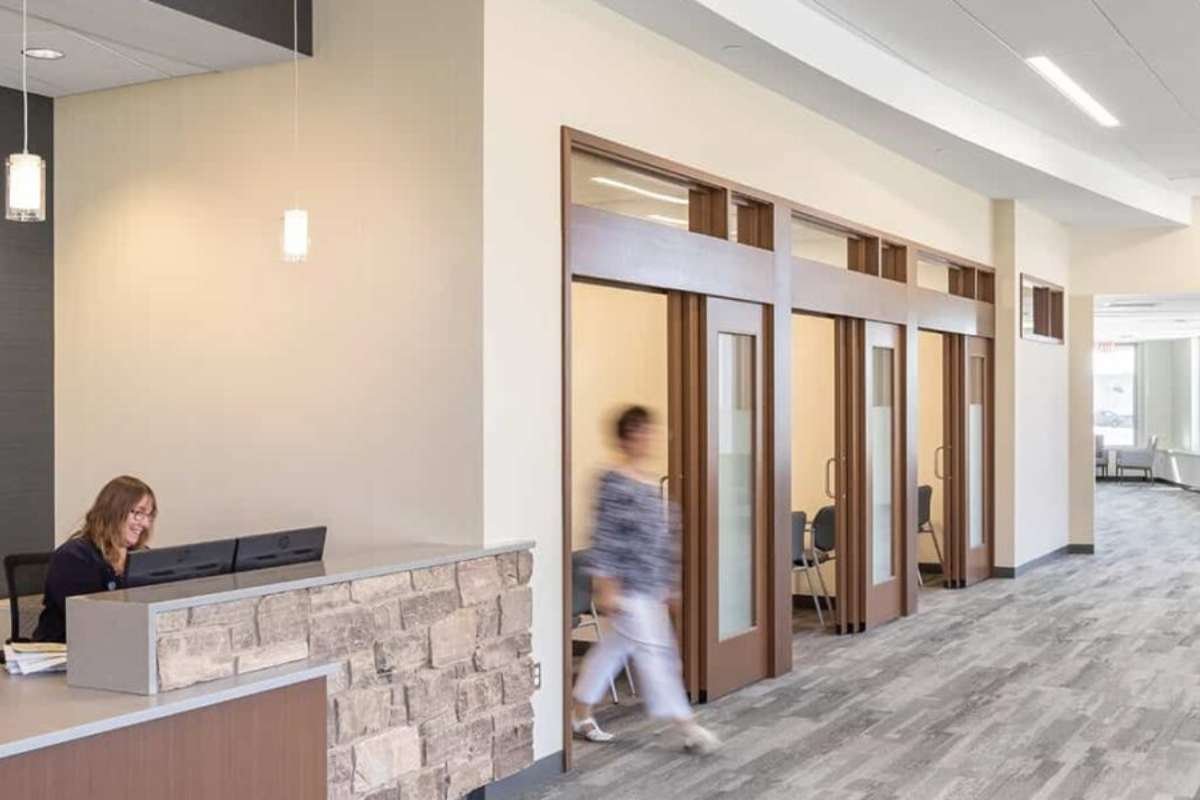Do you want to build a business that does something for the community? Then you should think about setting up a healthcare business!
If you’re a healthcare entrepreneur who has experience in the medical field and/or a degree in business, you’ll find it easier than most to set up a company capable of this. Indeed, from developing new medicines to building, servicing, and refining old medical tech, there are numerous burgeoning healthcare fields where setting up a local clinic could be your starting point.
But the one thing your local community is likely to need before anything else? More accessible healthcare. As such, you should think about setting up a new local clinic that’s ready to accept as many new patients as possible.
In doing so, you can provide a very valuable and popular service within your area. You’ll need to ensure your efforts are well funded and have proper legal backing, but if you’d like to both serve the community and turn a profit on top, this is a business idea worth considering.
And if that sounds like a good idea to you, let’s make sure you’re keeping the most important things in mind. If you’re interested in the current healthcare system, and you want to set up a new local healthcare clinic, here’s what you’ll need to remember.
Get Your Financial Needs Squared Away First
Most healthcare clinics need third party financial backing to get up and running. Setting up a local clinic often requires significant capital, and your own healthcare business plans will likely need the same. It can cost hundreds of thousands to set up a fully functioning clinic that serves the community 5 to 7 days a week, and some clinics even cost millions to keep operational!
We’re not saying you’re going to reach a point like that in your own career, but you are definitely going to need to secure funding for your enterprise in order to fulfill the goals you’ve set. As such, make sure you get these financial needs squared away before you do anything else.
When setting up a local clinic, you’ll need to create a budget that accounts for essential investments. Medical equipment, for example, as well as the premises you’re going to run your clinic in, and the staff you’re going to need to hire for the job.
And we’re not just talking about payroll here; it’s going to be pricey to hunt for talent in the first place, and you may need to run your employees through training programs before putting them to work.
Anyone who works the reception desk is most likely to need to adapt their administrative skills to a medical environment, and that’s a kind of training you should provide when you onboard them.
You’re Likely to Need More Space Than You Think

Most clinics are quite large, although they may not seem to be at first look. However, when setting up a local clinic, you’ll often find many multi-story buildings that host private practices like yours, with every floor dedicated to medical offices.However, there’s a lot of multi-storey buildings out there that host private clinics like yours, and every floor is taken up by medical offices.
You should think about this before investing in commercial real estate for your plans; you’re likely to need more space than you think.
This will obviously come with a higher price tag, but it may be worth the initial investment. After all, you’ll be able to offer more treatments with more space for machinery, and you can certainly hire more doctors and nurses to be on duty if there are more offices for them to take.
This enables your clinic to take on a bigger patient amount per day, and that can turn a much higher profit at the end of the month. There’s a big profit line difference between a clinic that needs its patients to be in and out within the hour, and a clinic that can take its time without losing out.
Decide on Your Treatment List

If you’re thinking of trying to provide as many treatments as possible, let go of the idea for now. In the present, you should focus on just a few medical issues you can safely and effectively assess and treat no matter what. You don’t want to fall into debt before you’ve even got started, but that’s an easy mistake to make when you want to do your best to help!
Gain a good reputation for this, with all the proper bedside manners a clinic should have, and you won’t find it difficult to bring in more patients and start to expand. Because after a certain point, this list doesn’t have to be static. You can expand and change it as time goes on, to better suit patient needs as well as your own money making efforts.
After all, the more patients you can begin to accept, the more payments you’re going to get, and everyone who walks through the door has a chance of accessing the right medical care and attention they truly need.
Setting Up A Local Clinic: Collaborate with Other Clinics
Collaboration is key in the medical field. One clinic isn’t going to be able to offer everything to their patients, no matter how big your budget is or how skilled your staff are. At some point or another, you’re going to need to send them off site in order to access the healthcare that’s really going to be beneficial for them.
But to prevent you from losing out here, you’re going to want to set up a collaboration – and to try to do so early. Find out what other clinics are in the area, what they offer, and what they do that’s different to you.
You may not own these other clinics, and you may not know the owners of them either, but you can reach out with a mutually beneficial offer. Get their contact details, send off an email, and try to set up a meeting.
Indeed, if a patient comes to you with a problem, but you don’t have the right equipment in order to effectively diagnose them, you could refer them to another clinic who does. If you’re then able to pass the same group of patients back and forth, without having to send them too far round the block, you lower competition while sharing in the profits of a diagnosis and treatment plan.
You’ll want to keep these collaborations as close to your own premises as possible, however. Like we mentioned, if patients have to go more than a few minutes away in order to receive more tests and scans, they’re not going to be very happy! That could cause a lot of complaints, and even lose you their patronage.
Will You Handle Emergencies?

When setting up a local clinic, a key decision is whether to offer emergency services. While some clinics do, and others don’t, it’s entirely up to you if you want to expand your capabilities to this degree. Emergencies can strike at all hours and could be hectic to try and deal with; is that the kind of operation you’re ready to take on?
Of course, you can hire staff to work these later hours to ensure your usual staff aren’t impacted by the longer shifts, but that is an extra cost you’ll have to consider carefully as well. Plus, when it’s an emergency that occurs outside of usual operating hours, there’s a chance you’ll need to provide transport and on-site treatment too.
To ensure you’re capable of providing this, you’ll want to invest in Ambulances for Sale so your team can ferry patients back and forth without worry. Although, you can buy these vehicles second hand, and that can make this a more affordable option overall.
Operating a 24 hour clinic does come with pitfalls, but it’s also a guarantee of service for the community at large. You can offer peace of mind over health, and access to a healthcare option that’s more direct, more responsive, and won’t cost an arm and a leg. If you’re keen to encourage patient loyalty that pays back dividends, this is one of the best methods to use.
What to Remember Before Investing in a Clinic?
If you’re a healthcare entrepreneur eager to go the extra mile, understanding the various intricacies involved in setting up a local clinic is paramount. You need to research your local area, find out what your potential patient roster really wants, and then do your best to deliver.
That’s going to take a good bit of investment funding to provide, and you’re going to need to set your sights on the future from day one.
Your treatment list shouldn’t stay the same the entire time you’re in business, and you should work closely alongside other clinics in the area too. If you haven’t been in a negotiation situation in a long time, you’ll need to brush up on those skills as well!
If you keep these key elements in mind while setting up a local clinic and getting it running, you’re in with a good chance of making your new local clinic a success. Now you just need to focus on marketing and customer service!








